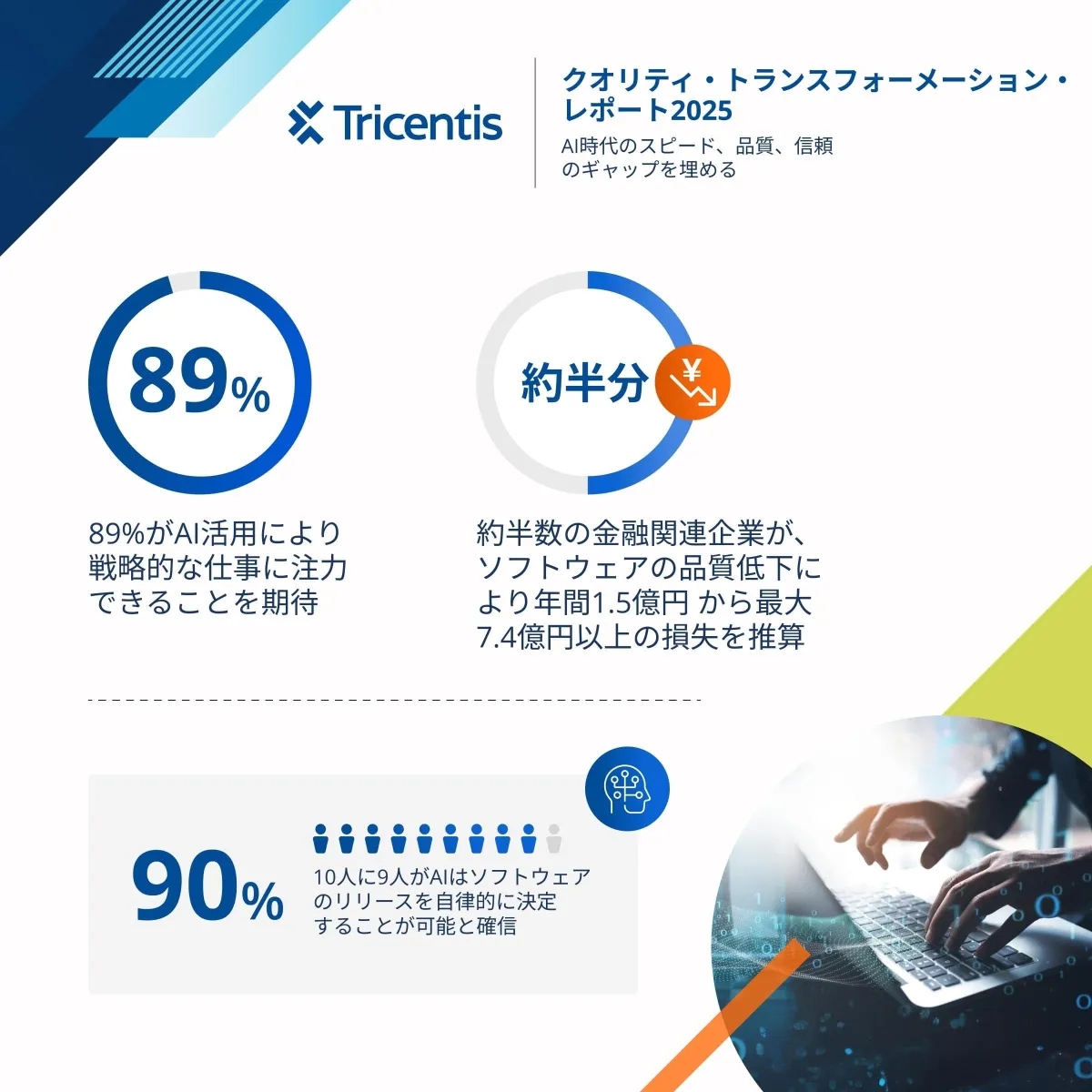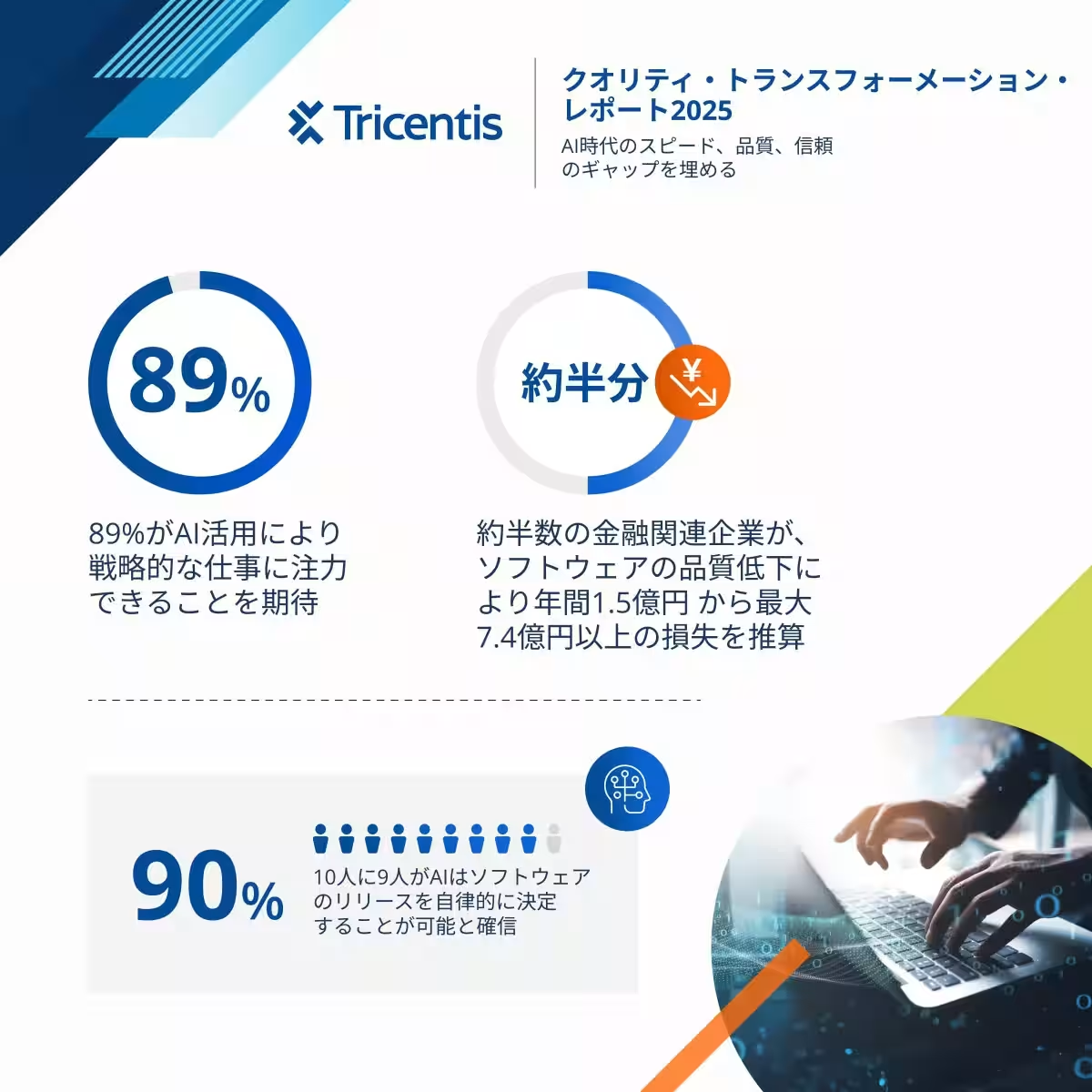

Global Companies Face Significant Software Quality Risks in 2025
Global Companies Face Major Software Quality Risks
According to the latest research by Tricentis, a worldwide leader in continuous testing solutions and software quality engineering, an alarming trend is emerging within the tech industry. The findings from the "Quality Transformation Report 2025" illustrate that two-thirds of global corporations are expected to encounter significant software defects over the next year, emphasizing a profound issue concerning high-quality software delivery. As organizations leverage AI, a stark disconnect has been noted between technology leaders and specialists regarding the prioritization of speed, quality, and cost.
The survey encompassed over 2,700 participants, including CIOs, CTOs, Engineering VP, DevOps and Quality Assurance leaders, and software developers from various sectors, such as public services, energy, utilities, manufacturing, and financial services. Here are the key insights from the report:
Expectations from Generative AI
Surprisingly, only 13% of global firms expect enhancements in software quality through generative AI, while a substantial 45% are more focused on increased delivery speed. In Japan specifically, the expectation for improved delivery speed reaches 40%, contrasting sharply with a mere 7% that anticipate gains in quality. Furthermore, 63% of respondents (62% in Japan) admitted to shipping code changes without complete testing. The primary reasons cited include avoiding delays in the release cycle due to testing (46% globally; 49% in Japan) and inadvertently including untested code (40% globally; 32% in Japan).
Financial Impact of Quality Decline
A staggering 42% of respondents reported annual losses exceeding $1 million attributed to declining software quality. This issue is particularly pronounced in the financial sector, where almost half of the companies in Japan lose an estimated annual range between 150 million yen to over 740 million yen due to compromised software quality.
Communication Gaps as Obstacles
The survey revealed that 33% (36% in Japan) of respondents identified a lack of communication between software development and quality assurance teams as a major barrier to improving software quality. Furthermore, 28% (27% in Japan) pointed out that insufficient cooperation between top management and software teams hinders quality improvements.
The Role of AI Agents
An impressive 82% of surveyed companies (89% in Japan) believe that delegating mundane tasks within the software development life cycle to AI agents will enable them to focus on more strategic activities. As the demand for faster delivery speeds grows, 84% globally and 85% in Japan expect AI to contribute significantly to enhancing both software quality and delivery speed.
Confidence in AI Decision-Making
An overwhelming 90% of respondents expressed confidence that autonomous AI/AI agents could assist in making impactful decisions regarding software delivery. Similarly, a substantial nine out of ten individuals in Japan believe AI has the capability to influence release decisions.
Measuring Cost-Effectiveness with AI
Across both global and Japanese markets, around 90% of respondents (93% in Japan) acknowledged the viability of effectively quantifying the cost-effectiveness of generative AI within the software development life cycle.
Autonomously Testing for Quality and Speed
The anticipated benefits of using AI-driven autonomous testing highlight improvements in delivery speed (28% globally; 31% in Japan) and overall software quality (28% globally; 30% in Japan). Other useful areas identified include analysis of test results (25% globally; 25% in Japan) and maintenance of test cases (23% globally; 25% in Japan).
Statement from Tricentis CEO
Kevin Thompson, CEO of Tricentis, emphasized, "The significance of delivering high-quality software has been underscored by recent software failures due to unverified or untested code changes across organizations. To adapt to the rapid pace of technological evolution, establishing a proper balance between quality and speed is essential. As AI progresses, technology leaders and practitioners must optimize the balance of quality, speed, and cost while defining what quality means for their companies. Comprehensive testing strategies are crucial for enhancing business outcomes."
The report suggests that while the transformation of software development powered by AI offers solutions for executives and practitioners to optimize the balance of speed and quality, it also introduces new challenges.
Tricentis's AI-enabled testing solutions are designed to tackle critical issues in the enterprise software delivery process. For a detailed read, you can download the entire "Quality Transformation Report 2025" here. To register for the upcoming webinar on May 22, click here.
Related Resources
- - Blog (English): The Quality Gap Leads to Millions in Losses—Latest Survey Highlights
- - Webinar (English): What Factors Hinder the Release of High-Quality Software?—Insights from Recent Survey
- - Website: Tricentis Copilot
- - Website: AI-Based Quality Management
Survey Methodology
In March 2025, Tricentis conducted a global survey of 2,750 respondents across 10 countries and five industries as part of the "Quality Transformation Report." Respondents included CEOs, CIOs, CTOs, General Managers, Engineering VPs, Application VPs, IT VPs, QA VPs, IT practitioners, DevOps leaders, QA leaders, and software developers focusing on significant software development, testing, quality, DevOps, and AI trends.
This release is a Japanese reference translation of the announcement made at Austin, Texas, on May 13, 2025.

Topics Business Technology)










【About Using Articles】
You can freely use the title and article content by linking to the page where the article is posted.
※ Images cannot be used.
【About Links】
Links are free to use.